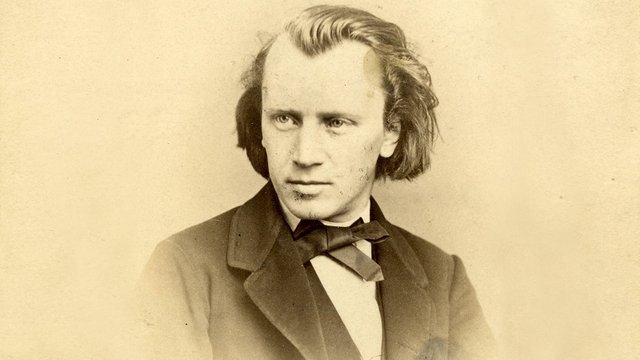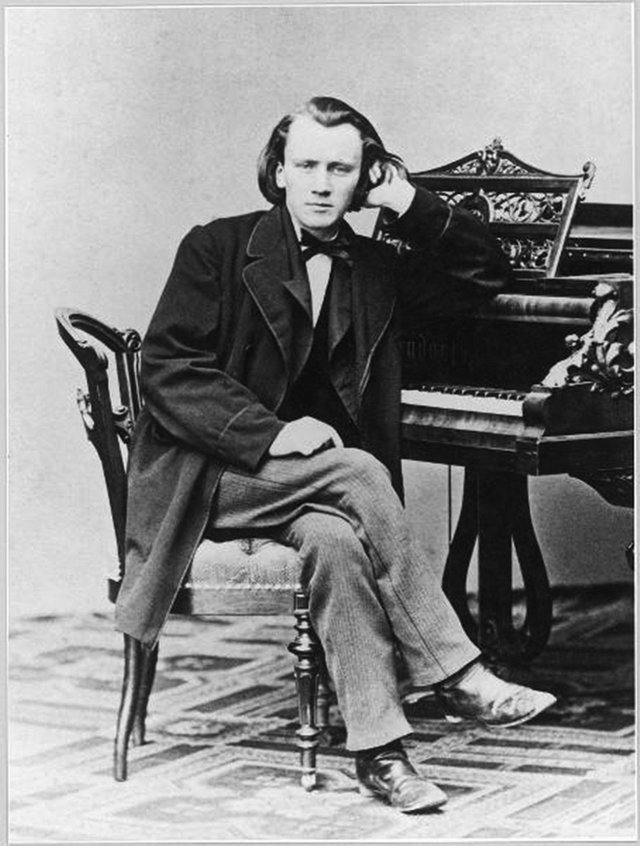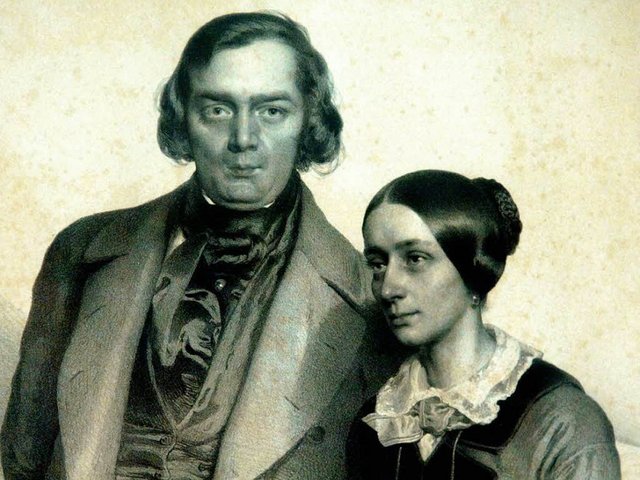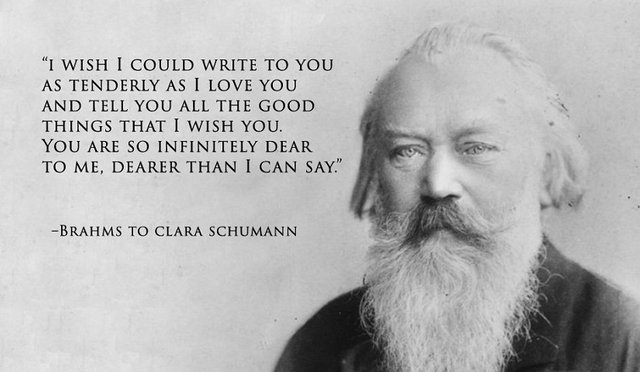[CLASSICAL MUSIC] Johannes Brahms - Socially Rude and Heartless - Musically Warm and Empathic 🎹
In Brahms's music one can notice both his unwillingness towards self disclosure and to deal with tasks he thought were too big for him to see through. In his music one meets his reluctance to go to extremes, his palpable reservation, his fear of big words. It's also this secludedness, this bound and enclosed warmth in his very essence, which gives many of his compositions their distinctive character.

Many have testified about Brahms's eccentric character and sullen and morose attitude. He didn't have many friends, never married, and he sure didn't hesitate to offend people. Brahms famously said "if there is anybody here I have not offended, I apologize" before leaving an evening gathering. Had he lived today he probably would be diagnosed with Asperger's or some similar disorder on the autism spectrum.
His words to the young composer Hans Rott are believed to have driven the latter to insanity and an early death. Rott brought his Bruckner-inspired and proto-Mahlerian symphony to Brahms, looking for approval from the great master. Brahms wasn't happy at all with so many students being influenced by Bruckner, who's compositions Brahms considered to be "symphonic boa constrictors." Brahms was particularly venomous and vile against those affiliated with Bruckner, Wagner and Liszt and he told the young Rott that he lacked talent and should give up composition. Rott was soon after committed to a mental hospital and died a few years later.
Nevertheless, Brahms's music emanates warmth and even empathy. His reservation makes him less spontaneous, less immediate, but also more heartfelt and intimate than his romantic peers. He never completely gave into his emotions to be at their mercy. In his instrumental compositions he's therefore nearly a classicist, fully in accordance with his personal disposition. Brahms's reluctance to anything excessive also causes him to avoid chromaticism as far as possible and instead adhere to a basically diatonic style. Despite this, Brahms is by no means an "anti-romantic" composer. The spirit of his music is highly romantic, even if he never wrote programme music. When he set music to contemporary poetry, he actually wrote the music first and then looked for appropriate poems.

Believe it or not, there was a veritable war playing out, even in the streets with bloodshed and all, between the conservative circle (Brahms, the Schumann couple, Mendelssohn, etc.) and their supporters, and the New German School (Wagner, Liszt, etc.) Strangely enough, the First Piano Concerto that we'll deal with in this article got huge praise from the New German School and was met with hatred from the conservatives.
The Piano Concerto No. 1 in D minor, Op. 15, was Brahms's first publicly performed orchestral work. The first performance took place in Hannover in 1859 with himself on the podium. The booing audience was not particularly impressed. Brahms refused to be knocked down and continued to believe in the work; another little evidence that points to some affective disorder.
According to pianists, the concerto is technically one of the most difficult in the whole repertoire. The form is classical with the traditional use of three movements, but in the relationship between piano and orchestra, Brahms introduces something brand new. Concerts used to be virtuoso-based bravura compositions with orchestral accompaniments. With Brahms, a lot of the bravura is gone and the solo instrument has instead become a part of the symphonic whole. The D minor concerto approaches a symphony to such an extent that it could be called a symphony for piano and orchestra. This can of course be attributed to the fact that the first movement of the concerto from the beginning was supposed to be the first movement of a symphony.

The concerto's tragic first movement, Maestoso, is characterized by the events of Schumann's unfortunate last years, when he became insane and tried to commit suicide. Brahms was very close to the Schumann family, and after learning about Robert's attempted suicide in 1854, he rushed back to Düsseldorf and devoted two of his years to support Clara and the family. Robert was admitted to a mental hospital the same year and died there two years later in 1856. The slow Adagio movement is a requiem to his dear friend and its main theme is based on the religious coral theme "Benedictus qui venit in nomine Domini." The dramatic first bars of the first movement, with its arpeggiated chords and trills, slightly contradicts what I said about Brahms being "restrained" and detesting exaggerations. The first time I heard it in a concert hall I actually couldn't help but jumping off my seat with startlement.

The third movement, Allegro non troppo, is a distinctive keyboard movement with its fiery, rhythmically precise opening theme. Here the piano is allowed to truly shine. The movement is not only a brilliant and grateful task for a pianist, but also a piano piece filled with humor and life. I'm only speculating, but perhaps Brahms saw some happiness in that he now had his beloved Clara for himself, the woman he had been unhappily in love with his entire adult life.
Enjoy the performance below with the radiating Hélène Grimaud at the piano, accompanied by the Southwest German Radio Symphony Orchestra and Michael Gielen.

Excellent article on one of my most favorite composers. Music becomes much more beautiful once you know more about the person behind the music. :)
I agree, context always informs an artwork of any form, regardless of how "absolute" the work is.
Great musician... thank you for sharing with us...
Thank you for this very interesting article. I did not know what was behind the music.
Wow! Your understanding of music is amazing! You are able to put into words what I sometimes feel and would have never be able to express.
What blows my mind is that great article only got eight bucks with change.
"Something's rotten in the state of denmark" LOL
I'm honestly glad as long as people read my articles and find them interesting / learn something. Thank you for your kind words! :)
yes, that's the point, hopefully benefiting someone and not wasting our time
steemswede, thanks for upvoting me few months ago
Wow, thorough analysis
Hi @steemswede, Thank you for this post describing Brahms' life and times along with his Piano Concerto No. 1 in D minor. It was especially interesting to read about Hans Rott and the rivalry between the conservatives and the New German School. @cmp2020 were discussing that rivalry a couple days ago, and he tells me that there was stil a prominent university in the early decades of 1900s that refused to recognize the Wagner/Liszt branch of music. I also enjoyed listening to Grimaud's performance in the youtube embed.
This article has been shared on the Steemit's Best Classical Music facebook page and included in our latest roundup post, Steemit's Best Classical Music Roundup [Issue #6].